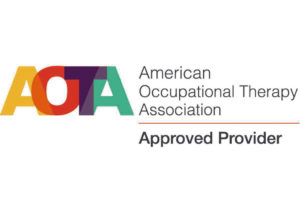Menu



To enjoy this and many similar courses for free, BECOME A NANT MEMBER today!
You may also purchase this course by clicking the Buy Now button below.
Already a Member? Make sure to log in by clicking the green Login button below to enjoy this course included in your Membership benefits.
Course Description: Standardized assessment tools in the Neonatal Intensive Care Unit (NICU) setting are a critical component of care for their value in prediction, discrimination, and evaluation. Standardized assessment tools can additionally be used clinically as a measurement of developmental change, to assist in establishing appropriate interventions, for assessment of intervention effectiveness, as a tool for parent education and for concise and consistent communication to the medical team and other healthcare professionals. Assessment tools vary in their intended use (neurological, neurobehavioral, neuromotor, and observational), postmenstrual age at which they can be administered, amount of handling required, length of time to administer, training required, and difficulty and clinical value of scoring and interpretation. This presentation will review currently available neonatal assessment tools and compare their criteria for use in the NICU setting by neonatal physical therapists, occupational therapists and speech-language pathologists. Neonatal assessment tools that will be discussed were identified using a literature search and include Neurological: Hammersmith Neonatal Neurological Examination (HNNE), The Preemie-Neuro; Neurobehavioral: The Assessment of Preterm Infants’ Behavior (APIB), The Neonatal Network Neurobehavioral Scale (NNNS), Neonatal Behavioral Assessment Scale (NBAS), The Neuro-behavioral Assessment of the Preterm Infant (NAPI); Neuromotor: Test of Infant Motor Performance (TIMP), General Movements Assessment (GMA); Observational: Neonatal Behavioral Observations (NBO), Naturalistic Observation of the Newborn Infant (NONB), and The Infant Sensory Profile 2. For each assessment, I will present a brief history of the assessment, clinimetric data (i.e. validity, reliability, specificity, sensitivity), postmenstrual ages for use, training required, and scoring and interpretation, as well as its value for clinical use. This presentation will provide the clinician with the tools to determine which assessments to use for what purposes while ascertaining what training is required for their use.
Target Audience: OT, SLP, PT, RN, MD and Neonatal professionals
Level: Intermediate
Objectives:
Instructional Method: Recorded webinar with handouts. Learning assessment and course evaluation follow course.
Course Completion Requirements: The learner must view the entire webinar, complete the course evaluation and complete the post webinar learning assessment with at least 80% to receive education credit. Login and logout times will be recorded and documented.
Following completion of this course physical therapists, nurses and other disciplines will receive a certificate of completion and a zip file containing information necessary to submit to their individual state for education credit. Zip file will include course bibliography. Physical therapists are responsible for knowing and adhering to their state’s deadlines, rules and regulations.
Speaker Bio: Kristen Connell, PT, DPT, PCS has been a physical therapist since 2005, specializing in pediatrics in post-graduate schooling and throughout her career as a physical therapist. Kristen has had the opportunity to work with infants born pre-term in a variety of settings, including in the NICU, developmental follow up clinic, inpatient care, outpatient clinic and in-home early childhood intervention services. Kristen started her career as a physical therapist at University of Chicago Medical Center Comer Children’s Hospital and Illinois Early Intervention Services. She then went to practice at Ann and Robert H. Lurie Children’s Hospital in Chicago until 2015 when she relocated to the St. Louis area. From 2016-2019, Kristen worked with the Washington University OT NICU lab research team on the SENSE study and acted as the SENSE administrator in the NICU during the randomized control trial. Kristen believes our greatest impact to improve outcomes in infants born prematurely starts with providing optimal developmental care and empowering and supporting parents in the NICU.
Elizabeth Heiny, OTR/L, CLC has been an occupational therapist since 2016. She has worked with preterm infants in both the home setting and the NICU. She started her career working with Dr. Pineda in Washington University’s OT NICU lab on the Baby Bridge Program and SENSE study. Then in 2018, she began working at St. Louis Children’s Hospital as a full-time therapist in the NICU.
Disclosures:
Kristen Connell, PT, DPT, PCS
Financial Disclosures: No relevant disclosures.
Nonfinancial disclosures: As a clinician, Kristen is trained in the following assessments: HNNE, TIMP, GMA and NNNS (partial training).
Elizabeth Heiny, OTR/L, CLC
Financial Disclosures: No relevant disclosures.
Nonfinancial disclosures: As clinician, Elizabeth is trained in the following assessments: HNNE, GMA, and NNNS.
Conflict of Interest: There is no conflict of interest for anyone with the ability to control content for this activity.
Agenda:
0 – 5 min: Introduction to Neonatal Assessments
5 – 8 min: Why use Standardized Assessments?
8 – 10 min: Historical overview of assessments/overview of available assessments
10 – 45 min: Brief overview of neonatal assessments in the following order: Neonatal Behavioral Assessment Scale, the Neurobehavioral Assessment of the Preterm Infant, the Hammersmith Neonatal Neurobehavioral Examination, Assessment of Preterm Infant Behavior, test of Infant Motor Performance, Neonatal Network Neurobehavioral Scale, Premie-Neuro, General Movement Assessment, Newborn Behavioral Observations, Naturalistic Observation of the Newborn Infant, Infant Sensory Profile 2
45-50 min: Summary of Clinical Usefulness
50 – 55 min: Self-reflection and close
55 – 60 min: Learning Assessment
Registration information:
In order to obtain access to the course, click the “Login” button at the top of the screen. You are required to be a NANT Member in good standing to have access to this course. You may also purchase this courses as a non-member by clicking the “Buy Now” button above.
For ADA accommodations, please call NANT Customer Service for more information at (866) 999-5524.
Cancellation Policy: Click HERE to review NANT’s Course Cancellation Policy.

AOTA CEUs: National Association of Neonatal Therapists® (NANT) is an AOTA Approved Provider of professional development. This Distance-Learning Independent Course is offered at 0.1 CEUs (Intermediate level, Occupational Therapy Service Delivery). AOTA does not endorse specific course content, products, or clinical procedures.

ASHA CEUs: Learners must complete the entire course in order to receive ASHA CEUs. No partial credit awarded. ASHA CE Provider approval and use of the Brand Block does not imply endorsement of course content, specific products or clinical procedures.
ASHA CE Registry users: NANT will submit your ASHA CEU credit to ASHA on your behalf. ASHA CEUs may take up to 100 days to appear on your ASHA Transcript.
Non-ASHA CE Registry users: Maintain your course records and please keep your registry status current in your NANT account. Update your NANT account with your ASHA number if your registry status changes. NANT is not responsible for tracking your registry usage.
PT CE Credit:
This activity is provided by the Texas Board of Physical Therapy Examiners Accredited Provider 2501058TX and meets continuing competence requirements for physical therapist and physical therapist assistant licensure renewal in Texas. 1.0 CCUs offered.
The assignment of Texas PT CCUs does not imply endorsement of specific course content, products, or clinical procedures by TPTA or TBPTE.
NANT is recognized by the New York State Education Department’s State Board for Physical Therapy as an approved provider of physical therapy and physical therapist assistant continuing education.
* If you attended this presentation at NANT 9, you can still receive CE Credit by completing this online version.
Questions regarding CE credit should be directed to the National Association of Neonatal Therapists at info@neonataltherapists.com or (866) 999-5524.